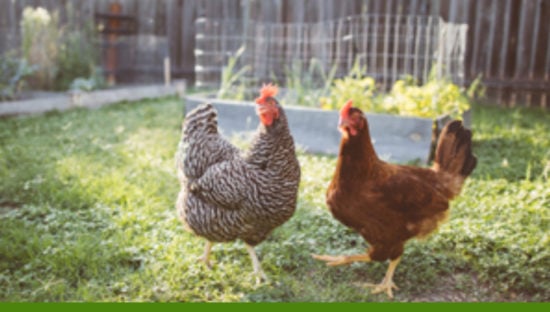June 19, 2025 | 01:53 GMT +7
June 19, 2025 | 01:53 GMT +7
Hotline: 0913.378.918
June 19, 2025 | 01:53 GMT +7
Hotline: 0913.378.918

The virus is increasingly being found in mammals in the United States and other countries.
According to John R. Clifford, veterinary trade policy advisory for the USA Poultry & Egg Export Council, an approved vaccine is not yet available that is a “good match to the virus.” That leaves biosecurity measures as the best U.S. weapon against the virus.
Clifford, who is scheduled to speak at the upcoming Chicken Marketing Summit, says the worst-case scenario would be the continuation of the current situation for “many years.” The Chicken Marketing Summit is scheduled for July 31 to Aug. 2 in Miramar Beach, FL.
Vaccinations against HPAI are being used in Mexico, China, Egypt and Vietnam.
The highly pathogenic avian influenza (HPAI) viruses have been detected in U.S. wild aquatic birds, commercial poultry, and backyard or hobbyist flocks since January 2022, causing the destruction of 58,645,211 birds. These are the first detections of HPAI viruses A (H5N1) in the U.S. since 2016.
The virus is increasingly being found in mammals in the United States and other countries.
Bird flu does not currently threaten food safety and only one U.S. poultry worker was sickened by the virus and that individual made a complete recovery. The virus has, however, turned up in 47 states, according to the federal Centers for Disease Control and Prevention in Atlanta. Birds not killed by the fast-moving virus are culled to prevent further spread.
Bird flu continues to strike. This week a mixed flock of 114 chickens, ducks, and geese were infected with the virus in LeSueur County, MN. The backyard flock was culled after the virus was confirmed by a federal laboratory in Ames, IA. HPHI strike was announced by the Minnesota Board of Animal Health.
Minnesota’s last case was reported four months ago, and the spread is blamed on migratory birds.
During the last week of March, Chile reported a second non-U.S. case of human infection with the avian influenza A(H5N1) virus. This second human “H5N1 bird flu” virus infection was reported in South America. The first was reported by Ecuador in December and was associated with exposure to backyard poultry.
In February of this year, neighboring Peru reported H5N1 virus infections in sea lions and pelicans after die-offs in those animals. Globally, there have been 11 human cases of H5N1 reported since January 2022. The prior 10 H5N1 cases all had exposure to poultry.
The source of H5N1 virus infection for the patient in Chile is part of an ongoing investigation. A respiratory specimen from the Chile case patient is being sent to the U.S. Centers for Disease Control and Prevention for confirmation and additional testing. In the U.S., one H5N1 case was reported in a person who reported fatigue without any other symptoms after poultry culling activities.
As of March 10, 2023, H5N1 viruses (clade 2.3.4.4b) have been detected in wild birds or poultry in 16 countries in Latin America and the Caribbean as well as the United States and Canada, and in most of the rest of the world.
(FSN)

(VAN) Extensive licensing requirements raise concerns about intellectual property theft.

(VAN) As of Friday, a salmonella outbreak linked to a California egg producer had sickened at least 79 people. Of the infected people, 21 hospitalizations were reported, U.S. health officials said.

(VAN) With the war ongoing, many Ukrainian farmers and rural farming families face limited access to their land due to mines and lack the financial resources to purchase needed agricultural inputs.

(VAN) Vikas Rambal has quietly built a $5 billion business empire in manufacturing, property and solar, and catapulted onto the Rich List.

(VAN) Available cropland now at less than five percent, according to latest geospatial assessment from FAO and UNOSAT.

(VAN) Alt Carbon has raised $12 million in a seed round as it plans to scale its carbon dioxide removal work in the South Asian nation.

(VAN) Attempts to bring down the price of the Japanese staple have had little effect amid a cost-of-living crisis.